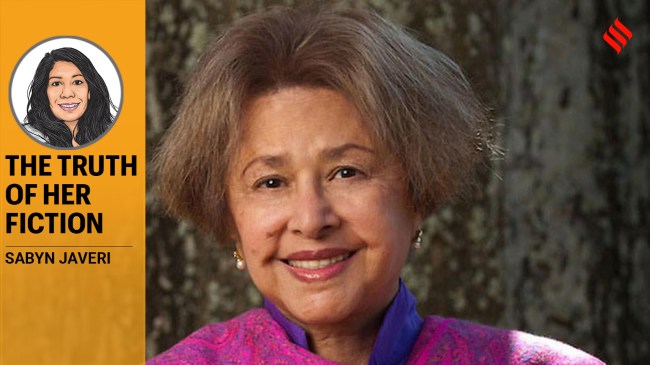Opinion In Bapsi Sidhwa’s fiction, the truth of Partition’s trauma
Reading ‘Ice-Candy-Man’ (1988), I realised how fiction can humanise history. The story, narrated through the eyes of a young girl, showed the human cost of the division, beyond its politicisation through nationalistic lenses.
 Bapsi Sidhwa's influence is felt not only in the South Asian literary community but across the globe.
Bapsi Sidhwa's influence is felt not only in the South Asian literary community but across the globe. Some call her a Pakistani writer, some a Parsi one, but for me, Bapsi Sidhwa (1938-2024) remains a writer who transcends all borders. Her writing bridged the many layers of human experience beyond nationalities and religions. Born in pre-Partition Karachi, Sidhwa’s writings merge history, identity, and the complexities of human experience with a depth and compassion that remain unparalleled. Through her novels, she created spaces where marginalised voices were heard, women’s experiences explored, and where the traumatic pasts of nation-states could be understood through the lives of unforgettable characters. With her passing at the age of 86 in Texas, the literary world has lost a brilliant and fearless storyteller.
For me, and for countless other writers from the Sub-continent, Sidhwa’s work was not just a form of storytelling — it was a revelation. As a young Pakistani woman, reading her novels ignited a desire to explore beyond state narratives and history textbooks, and to understand the world in a more nuanced way. Sidhwa’s writing not only shaped my understanding of the world but also inspired me to give voice to the stories around me. I remember browsing the stacks at a second-hand book store in Karachi as a teenager, and amongst the rows of English language books by Western authors, coming across her name. It was a surprise to find a novel with characters like myself, with familiar settings and customs. In a way it made me feel that my story mattered — it gave me permission to transition from a passive reader to an active writer.
Reading Ice-Candy-Man (1988), a novel that explores the devastation caused by the Partition, I realised how fiction can humanise history. The story, narrated through the eyes of a young girl, showed the human cost of Partition, beyond its politicisation through nationalistic lenses. Sidhwa mined her own life to tell a personal story of families torn apart, personal betrayals, and the anguish of migration. Though many Urdu and Punjabi writers had written on this subject, it was through this book that I first understood the true scope of Partition’s trauma. It was this humanism that made her writing stand out. In her own words, “Many historians have arrived at the truth. But often their narration is imbued with their own prejudice and can slant history to suit their or their own or their country’s agenda. History in the hands of fiction writers like Tolstoy is often more authentic and vivid than history books.”
The Bride (1983) remains another cornerstone in Sidhwa’s exploration of women’s lives within restrictive cultural and patriarchal systems. The novel takes readers into the heart of a young woman’s forced marriage and her struggle to maintain her dignity and sense of self in the face of isolation and abuse. Unlike other novels with such themes, Sidhwa also imbued her characters with a deep, quiet strength — something
I began to understand more profoundly as I grew older.
Sidhwa brought her compassion and wit to her evocation of community lives as well. Through the satirical and heartwarming The Crow Eaters (1978), she portrayed the Parsis not just as a community but as a rich and integral part of the cultural fabric of South Asia. An American Brat (1993) explored the experience of a young Pakistani girl living in the US, caught between the cultural expectations of her family and the alienating freedoms of the West. Sidhwa’s ability to portray the struggles of diaspora communities — of finding a sense of belonging when you straddle multiple identities — remains a key influence on my own writing journey as a global citizen.
most read
Sidhwa’s influence is felt not only in the South Asian literary community but across the globe. Her stories continue to remind us of the power of literature to connect, to heal, and to provoke. As she once said in an interview, “The role of a novelist, and by extension the novel, is to reveal the culture and complexities of a society in a manner that is engaging and entertaining”. Sidhwa did exactly that — she made us see the world not only as it is but as it could be.
Javeri is a writer, translator and essayist from Pakistan. She teaches writing at New York University, Abu Dhabi






